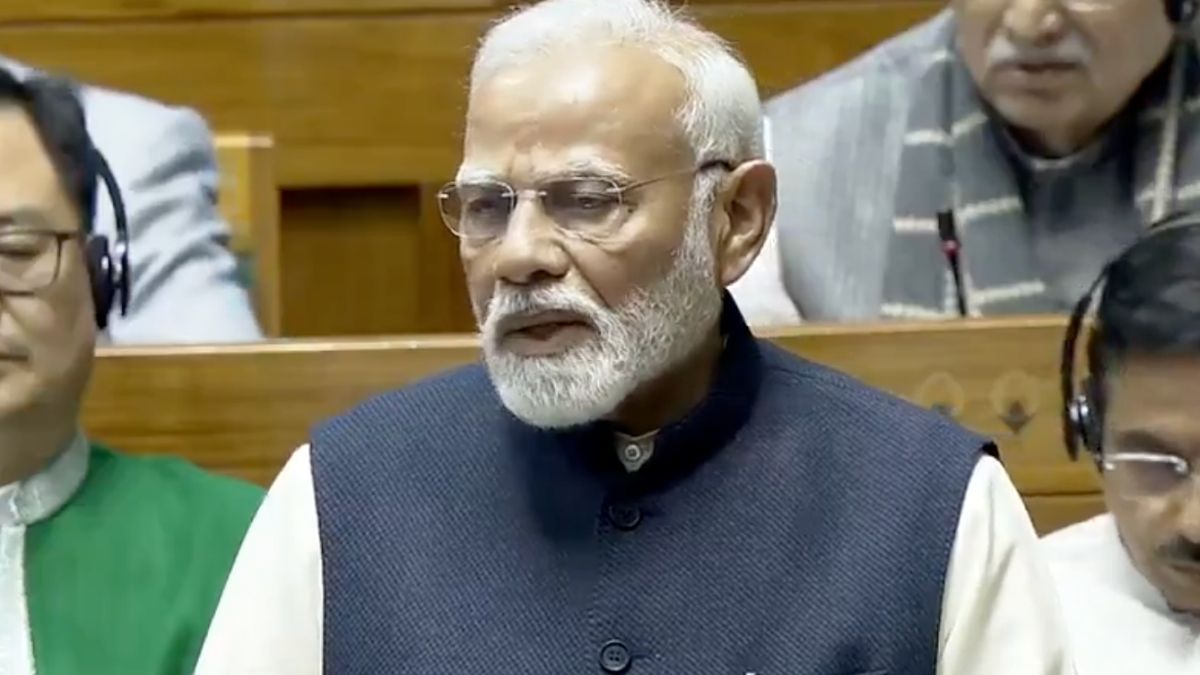The government introduced the ‘One Nation, One Election’ bill in the Lok Sabha on Tuesday, December 17, marking a significant move toward implementing simultaneous elections for Lok Sabha and state Assemblies. Law Minister Arjun Ram Meghwal tabled two bills, including the Constitution (One Hundred and Twenty-Ninth Amendment) Bill, 2024, to align election cycles across the country.
Key Details and Mechanism
- Introduction of Two Bills:
- The Constitution (One Hundred and Twenty-Ninth Amendment) Bill, 2024
- The Union Territories Laws (Amendment) Bill, 2024
These bills lay down the mechanism to hold simultaneous elections for Lok Sabha and state Assemblies.
- Parliamentary Process:
- The bills were introduced amid a fiery debate in the Lok Sabha, where the Opposition criticized them as an attack on the federal structure. The government dismissed these claims, and the bills were introduced with 269 members voting in favor and 198 against.
- Notably, this was the first time the electronic voting system was used in the Lok Sabha within the new Parliament House.
- Joint Parliamentary Committee (JPC):
- Following the voting, Law Minister Arjun Ram Meghwal formally introduced the Constitution (129th Amendment) Bill, 2024 on ‘One Nation, One Election’.
- In response to Union Home Minister Amit Shah’s statement, Meghwal agreed to send the bill to a Joint Parliamentary Committee (JPC) for detailed deliberations and discussions.
- Adjournment:
- After the introduction and subsequent voting, Lok Sabha proceedings were adjourned for a little over an hour.
Key Features of the Bill
- Introduction of Article 82A:
- A new Article 82A will be added to the Constitution to enable simultaneous elections for Lok Sabha and state Assemblies.
- Article 82A(1) empowers the President to bring this provision into effect via public notification after the first sitting of the Lok Sabha post-general elections.
- Fixed Terms for Assemblies:
- Under Article 82A(2), all legislative Assemblies elected after the “appointed date” will align their terms with the Lok Sabha’s full term, curtailing some Assemblies’ five-year tenure.
- Mandate for Simultaneous Elections:
- Article 82A(3) mandates the Election Commission of India (ECI) to conduct simultaneous general elections for Lok Sabha and all state Assemblies.
- Article 82A(4) defines simultaneous elections as “general elections held for constituting the House of the People and all Legislative Assemblies together.”
- Provision for Exceptions:
- Article 82A(5) allows the ECI to defer Assembly elections under specific circumstances and make recommendations to the President.
- Article 82A(6) ensures that such Assemblies’ terms will still align with the Lok Sabha’s tenure.
Background and Recommendations
The proposed amendments are based on the recommendations of the High-Level Committee on ‘One Nation, One Election’, chaired by former President Ram Nath Kovind, which submitted its report earlier this year to President Droupadi Murmu.
Implications of the Bill
If implemented, the bill will align election cycles across the country and reduce the frequency of elections. However, this will require significant adjustments, such as curtailing some state Assemblies’ terms, to synchronize with the Lok Sabha elections.
The bills are now slated for a Joint Parliamentary Committee (JPC) review, ensuring a comprehensive discussion before their final passage in Parliament.


